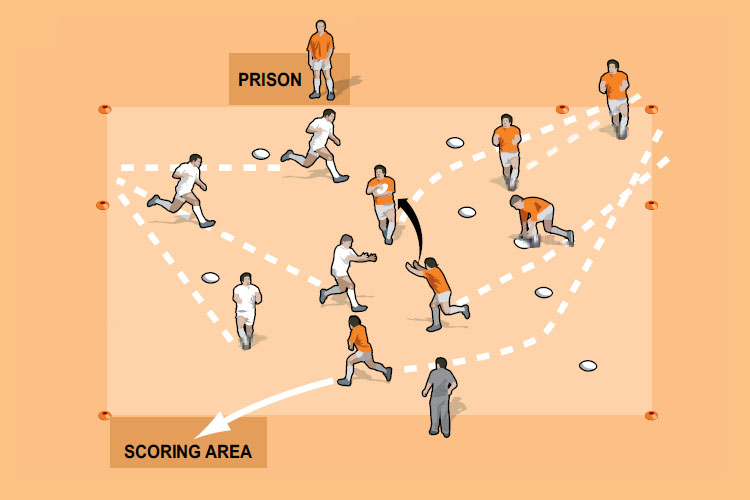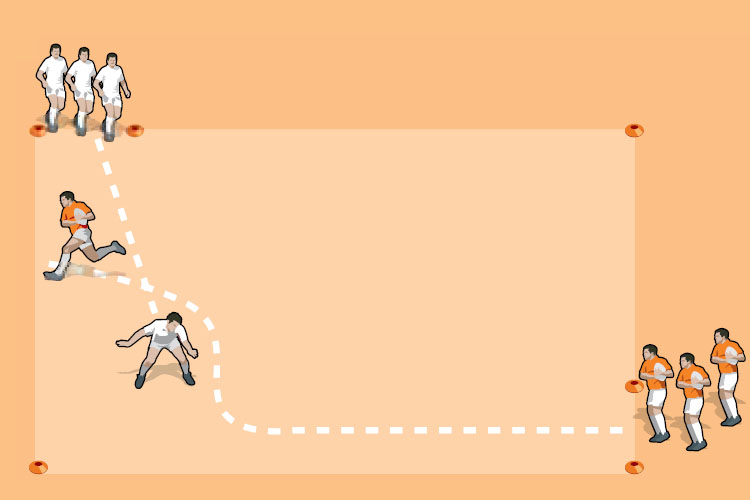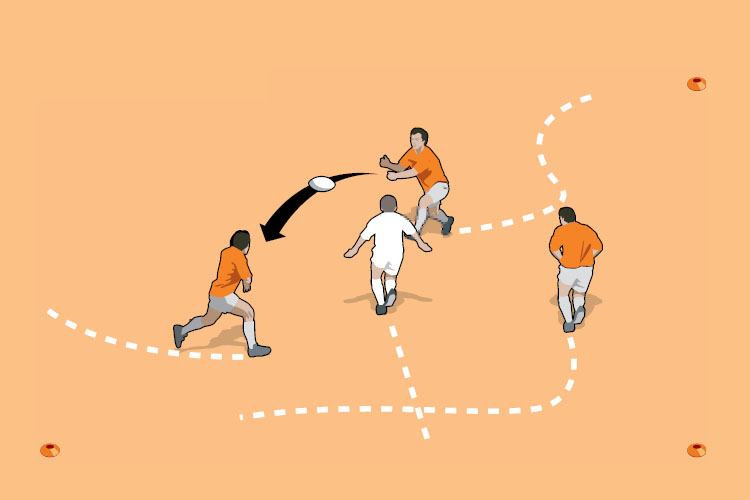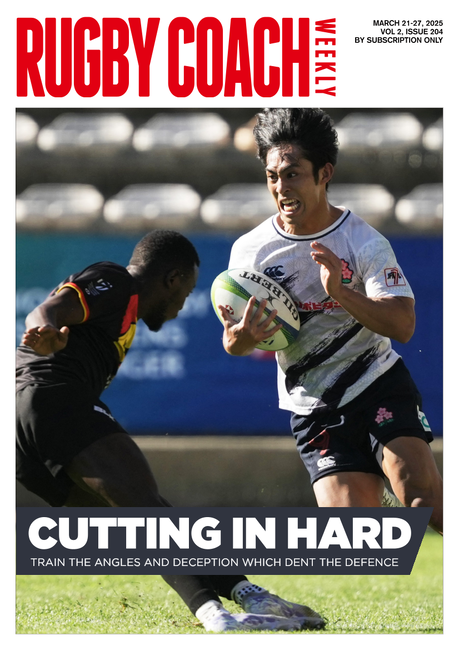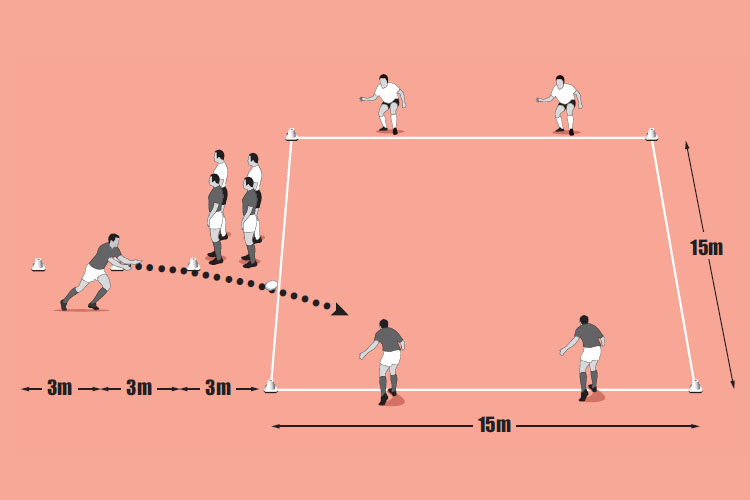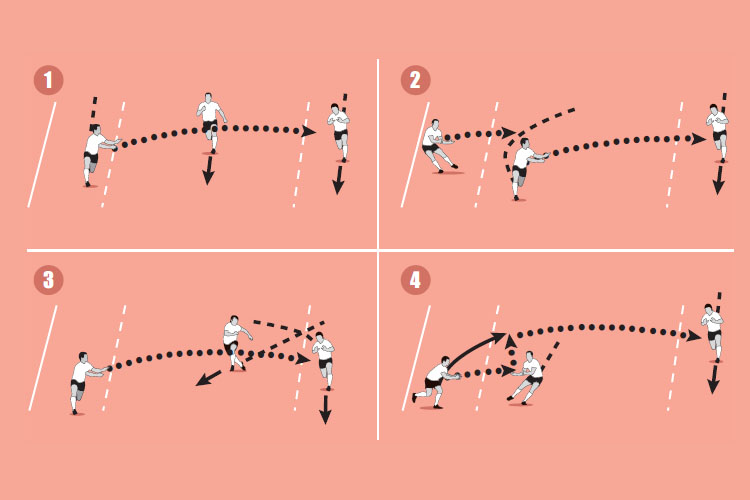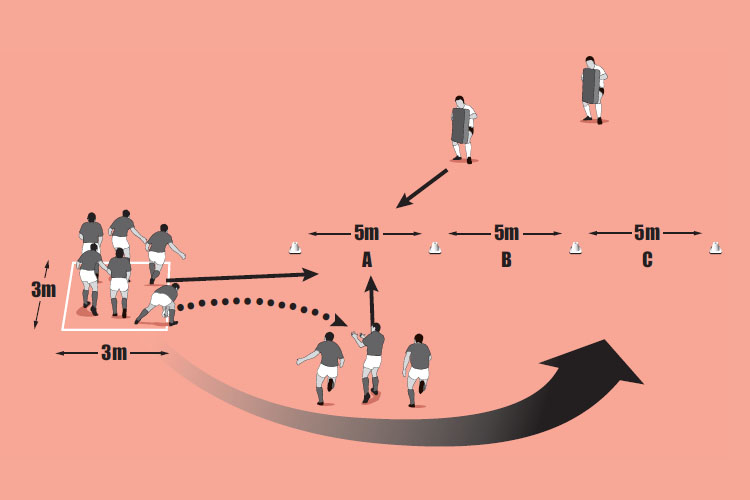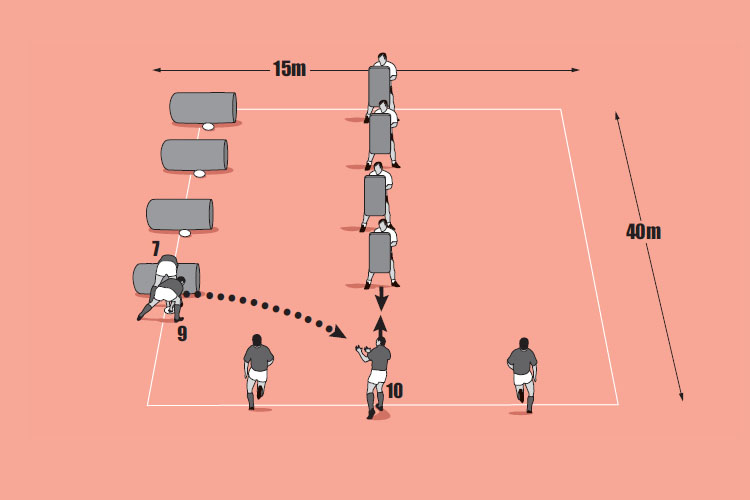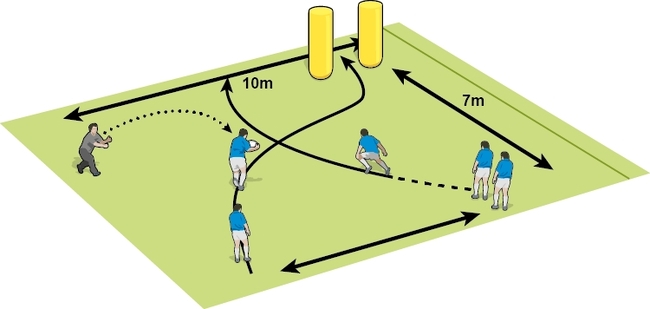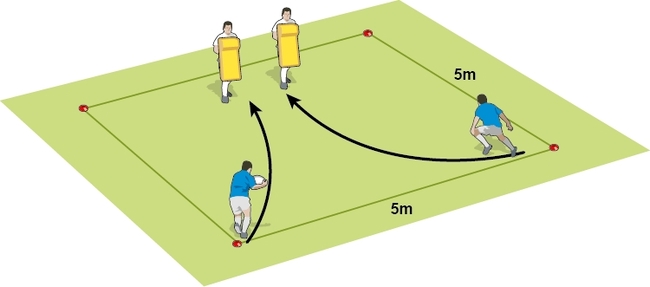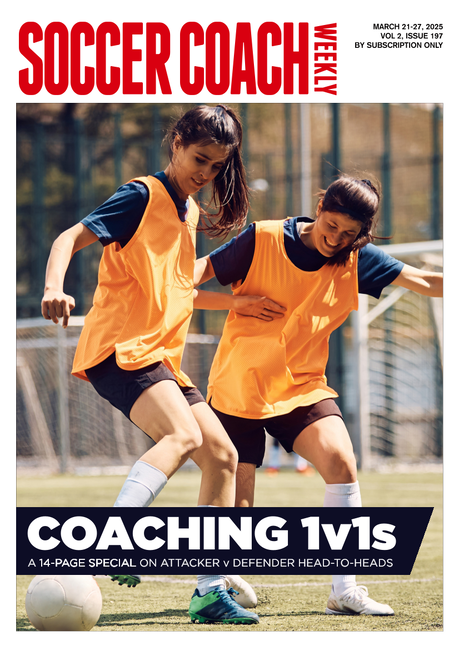Catch me if you can
Game-related skills are more likely to be discovered by playing games. Here is one such game which can be used as a warm up session as well as a full session. Players will learn successful ways to evade defenders and pass to free players. The session also involves two exercises to revise the key areas.
Warm up time: 7-10
Session time: 20-25
Development time: 10-15
Game time: 10-15
Warm down time: 7-10
What to think about
- Are the players using evasion running skills to get the balls into the scoring area?The players may try to run straight for the scoring area, and therefore become easy targets for the defence. Go back to simple side steps and swerving practices, before repeating the “catch me if you can” session.
- Do the players use any type of team work to ensure success?Encourage clear concise communication and give the players time to work out a strategy before starting each attack. A small handling practice can be set up to remind players of the skills.
set-up
- Collect a ball and move towards the scoring area by evading the defenders.
- Pass the ball to a team mate if you think you may be caught.
- Try to free any of your team mates that get caught and are in the “prison”.
- Look for space and free players, while keeping the defenders in view.
What you get your players to do
Split your squad into eight attackers and four defenders. On your signal the attackers have to move into the box, collect a ball and try to get as many of the balls into the scoring area. The ball can be passed. The defenders move into the area at the same time and try to touch tackle the attackers. If caught, the attacker places his ball on the ground and goes to the prison area. He can be released by another attacker tagging him with a ball. The game continues until all the balls are in the scoring area or all the attackers are in the prison.Development
- Use a stop watch to see how long it takes the group to get all the balls into the scoring area.
- Add more defenders to add more pressure on the attack.
- Nominate four attackers and defenders to swap sides during the game.
- Vary the position of the scoring area and prison.
Related Files
Game situation
Play a game of six versus six and give the attacking team two balls. Strategically the attack should split themselves into two groups as should the defence, the decision making and spatial awareness will become apparent as the game develops. Once a try is scored everyone focuses on the remaining ball. Start with touch rugby before developing into full contact.What to call out
- “React quickly and find a ball”
- “Find the space, look for gaps”
- “Side step, swerve and accelerate”
- “Make a choice – pass or run”
- “Pass and move”
Newsletter Sign Up
Coaches Testimonials

Gerald Kearney, Downtown Las Vegas Soccer Club

Paul Butler, Florida, USA

Rick Shields, Springboro, USA

Tony Green, Pierrefonds Titans, Quebec, Canada
Subscribe Today
Be a more effective, more successful rugby coach
In a recent survey 89% of subscribers said Rugby Coach Weekly makes them more confident, 91% said Rugby Coach Weekly makes them a more effective coach and 93% said Rugby Coach Weekly makes them more inspired.
Get Weekly Inspiration
All the latest techniques and approaches
Rugby Coach Weekly offers proven and easy to use rugby drills, coaching sessions, practice plans, small-sided games, warm-ups, training tips and advice.
We've been at the cutting edge of rugby coaching since we launched in 2005, creating resources for the grassroots youth coach, following best practice from around the world and insights from the professional game.
